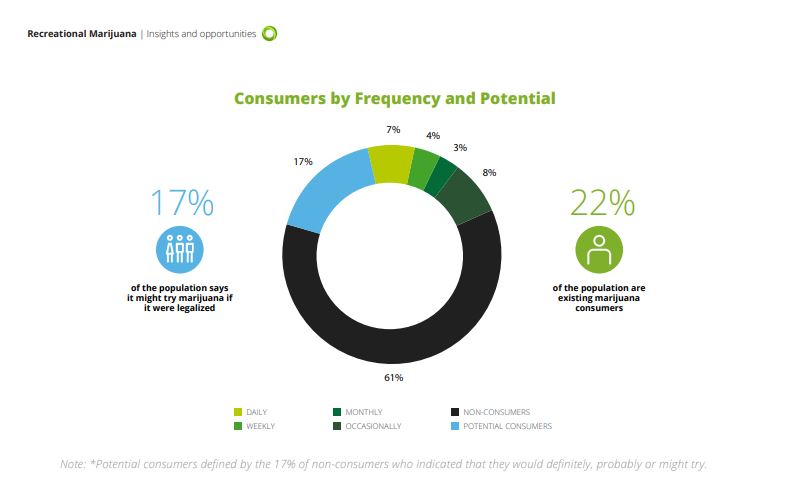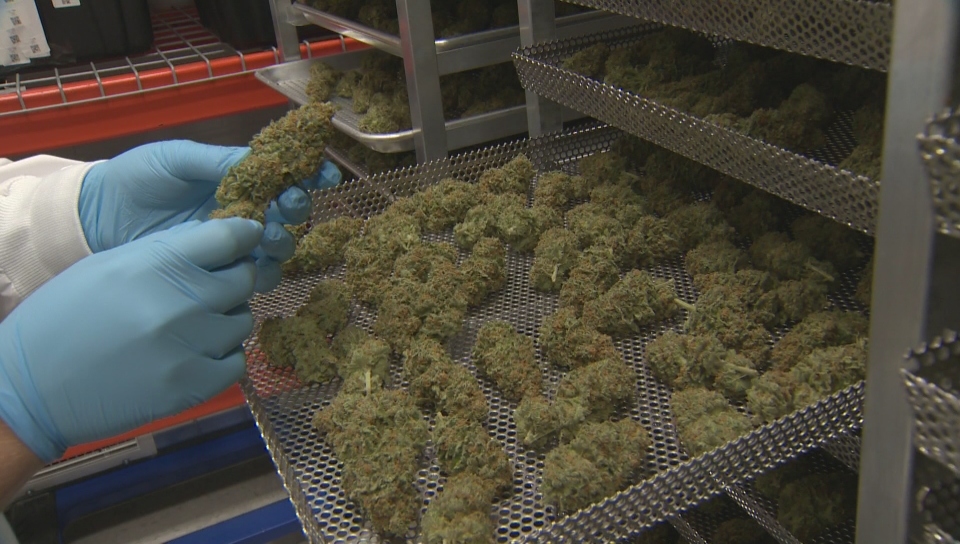Many people have expressed their concerns that once marijuana is legalized in Canada this summer, it will be a free for all but realistically will pot use skyrocket?

According to one report, at least seven per cent of Canadians already use weed on a daily basis.
“It’s up air, I think it’s likely there will be an increase,” said Jerome Konecsni, executive-in-residence at the Johnson Shoyama Graduate School of Public Policy.
“If we look at other jurisdictions where it’s been legalized we see that there is an increase in consumption like Colorado.”
Will that last or level off, that’s hard to say added Konecsni and will depend on the user.
What we do know, so far, from data collected in 2016 by Deloitte and featured in the ‘Recreational Marijuana: Insights and Opportunities’ report is that 61 per cent of adult Canadians don’t consume weed whereas 22 per of cent of the population does in various frequencies.
“You would expect that when the stigma is removed of a criminal offence you may have more people who that would otherwise not be willing to take that risk might be prepared to,” said Chris Lavier, a criminal defence lawyer in Saskatoon.
The biggest question as we close in on legalizing cannabis could be what will happen with the 17 per cent of adults who admitted that they might use it once it’s legal.
“What is that would make them become a user? What things do they need to see in place – is it safety, is it assurance, it’s secure, is it healthy for them.” Konecsni explained.

Get daily National news
“There are some people who are going to observe and see how things go, how some of their friends use it or how regulations roll out.”
According to Dr. Peter Butt, an addictions specialist with the Saskatchewan Health Authority, those undecided may also base their decision on the types of products available, the strength of these products and how they react to them.
“This is not an innocuous substance, it is mood altering and someone will like that – some people won’t.”
The problem Butt has is the way weed is being commercialized especially in this region where prior to increased use of crystal meth, pot was the primary reason for youth admissions to addiction services.
“I think the industry’s role can be very positive but they need to do it in an ethical way and some of the things that are being promoted now are unethical and unfounded.”
So how will marijuana use be conclusively monitored once it’s legal? The consumption of drugs leaves behind biomarkers in human waste.
Statistics Canada plans to study wastewater from municipalities prior to it’s legalization and after, an approach that has already been done in the Netherlands.








Comments
Want to discuss? Please read our Commenting Policy first.